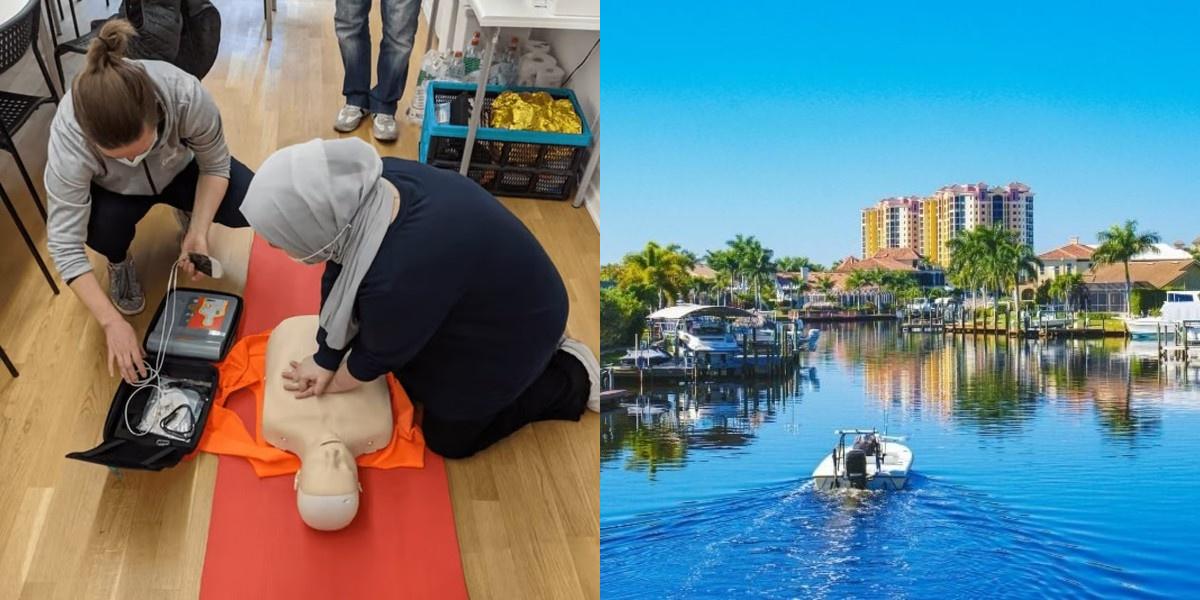Key Points
- What is a Paramedic? A paramedic is a highly trained healthcare professional who provides advanced pre-hospital emergency medical care to patients in critical condition.
- How to become a Paramedic in Florida? To become a paramedic in Florida, you must first earn your EMT certification, then complete a state-approved paramedic training program (1-2 years), pass the National Registry of Emergency Medical Technicians (NREMT) exam, and apply for licensure with the Florida Department of Health.
- Length of training for Paramedic: Paramedic school in Florida typically takes 1 to 2 years to complete after you have received your EMT certification.
- Average Paramedic salary in Florida: The median salary for paramedics in Florida is approximately $58,860 per year (Nurse.org, 2024).
- Number of employment of Paramedics in Florida: There are approximately 4,720 paramedics employed in Florida (BLS, May 2022).
What is a Paramedic?
Paramedics are skilled healthcare professionals trained to respond to medical emergencies. They are often the first to arrive at the scene of accidents or critical health events, making split-second decisions that can save lives.
What Do Paramedics Do?
- Assess patient conditions and provide immediate care.
- Administer medications, including injections.
- Perform advanced procedures like intubation and defibrillation.
- Monitor vital signs and provide care during transport to the hospital.
- Communicate effectively with emergency room staff to ensure seamless patient handoff.
Work Settings for Paramedics
Paramedics work in a variety of settings, including:
- Ambulance Services: Many paramedics are employed by ambulance services and respond to emergency calls.
- Hospitals: Some paramedics work in hospital emergency rooms or critical care units.
- Fire Departments: Many fire departments employ paramedics as part of their emergency response teams.
- Private Companies: Paramedics may be hired by private companies to provide medical services at events or on film sets.
Requirements to Become a Paramedic in Florida
To become a paramedic in Florida, you must meet certain education and legal requirements. These include:
- High School Diploma or GED: You must have a high school diploma or equivalent to enroll in a paramedic training program.
- EMT-Basic Certification: Before entering a paramedic program, you must first become certified as an Emergency Medical Technician (EMT)-Basic.
- Paramedic Training Program: You must complete a state-approved paramedic training program, which typically takes 1-2 years to complete.
- State Certification: After completing the training program, you must pass the National Registry of Emergency Medical Technicians (NREMT) exam and apply for state certification.
- Background Check and Drug Screening: As a paramedic, you will be working in a position of public trust, so you will be required to undergo a background check and drug screening.
How to Become a Paramedic in Florida?
To become a Paramedic in Florida, one must first complete an accredited Paramedic training program, which provides the necessary education and clinical experience. After successfully passing the National Registry of Emergency Medical Technicians (NREMT) exam, individuals can then apply for state certification. Once certified, Paramedics can search for job opportunities and begin earning a competitive salary in the healthcare field.
How do I get a job as a Paramedic?
After obtaining your paramedic certification, the next step is to find a job as a paramedic. Here are some steps you can take to increase your chances of finding employment as a paramedic.
Once certified, finding a job as a paramedic is the next step. Here are some tips to jumpstart your career:
1. Polish Your Resume: Highlight your certifications, training, and relevant experience. Include any specialized skills or awards.
2. Network: Reach out to instructors, classmates, and colleagues for job leads. Attend industry events and job fairs to connect with potential employers.
3. Research Employers: Look into ambulance services, hospitals, and fire departments in your area. Learn about their mission and values to tailor your application.
4. Apply Strategically: Follow application instructions carefully. Tailor your cover letter to each position, showcasing why you’re a great fit.
5. Prepare for Interviews: Practice answering common questions about your training, experience, and ability to handle high-stress situations. Be professional and confident.
Career Paths and Opportunities after Becoming a Paramedic
Becoming a paramedic opens up a wide range of career paths and opportunities. Here are some of the options you can explore after obtaining your paramedic certification.
-
Emergency Medical Services (EMS): Work as part of an ambulance team or EMS unit, responding to 911 calls and transporting patients.
-
Flight Paramedic: Provide critical care in air ambulances, requiring advanced training and experience.
-
Firefighter-Paramedic: Combine firefighting with paramedic skills as part of a fire department's emergency response team.
-
Hospital Emergency Department: Work alongside doctors and nurses in high-pressure hospital settings.
-
Event Medical Services: Provide on-site care at concerts, sporting events, and festivals.
-
Education and Training: Teach the next generation of EMTs and paramedics by becoming an instructor or trainer.
-
Management and Administration: Oversee EMS operations or manage hospital emergency services, shaping the future of emergency medical care.





